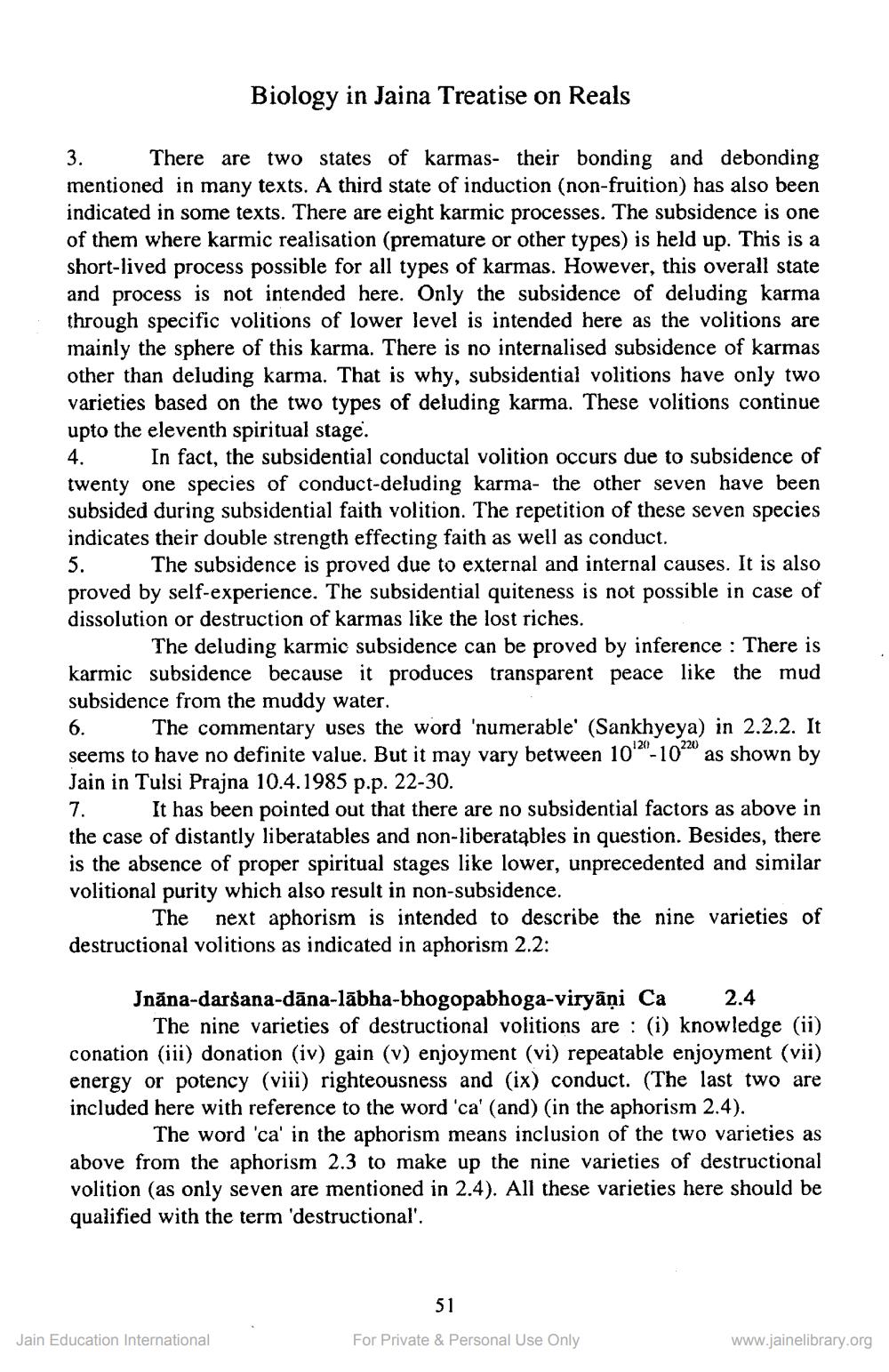________________
Biology in Jaina Treatise on Reals
3. There are two states of karmas- their bonding and debonding mentioned in many texts. A third state of induction (non-fruition) has also been indicated in some texts. There are eight karmic processes. The subsidence is one of them where karmic realisation (premature or other types) is held up. This is a short-lived process possible for all types of karmas. However, this overall state and process is not intended here. Only the subsidence of deluding karma through specific volitions of lower level is intended here as the volitions are mainly the sphere of this karma. There is no internalised subsidence of karmas other than deluding karma. That is why, subsidential volitions have only two varieties based on the two types of deluding karma. These volitions continue upto the eleventh spiritual stage. 4. In fact, the subsidential conductal volition occurs due to subsidence of twenty one species of conduct-deluding karma- the other seven have been subsided during subsidential faith volition. The repetition of these seven species indicates their double strength effecting faith as well as conduct.
The subsidence is proved due to external and internal causes. It is also proved by self-experience. The subsidential quiteness is not possible in case of dissolution or destruction of karmas like the lost riches.
The deluding karmic subsidence can be proved by inference : There is karmic subsidence because it produces transparent peace like the mud subsidence from the muddy water. 6. The commentary uses the word 'numerable' (Sankhyeya) in 2.2.2. It seems to have no definite value. But it may vary between 10'2"-1022as shown by Jain in Tulsi Prajna 10.4.1985 p.p. 22-30. 7. It has been pointed out that there are no subsidential factors as above in the case of distantly liberatables and non-liberatables in question. Besides, there is the absence of proper spiritual stages like lower, unprecedented and similar volitional purity which also result in non-subsidence.
The next aphorism is intended to describe the nine varieties of destructional volitions as indicated in aphorism 2.2:
Jnāna-darsana-dāna-lābha-bhogopabhoga-viryāṇi Ca 2.4
The nine varieties of destructional volitions are : (i) knowledge (ii) conation (iii) donation (iv) gain (v) enjoyment (vi) repeatable enjoyment (vii) energy or potency (viii) righteousness and (ix) conduct. (The last two are included here with reference to the word 'ca' (and) (in the aphorism 2.4).
The word 'ca' in the aphorism means inclusion of the two varieties as above from the aphorism 2.3 to make up the nine varieties of destructional volition (as only seven are mentioned in 2.4). All these varieties here should be qualified with the term 'destructional'.
Jain Education International
For Private & Personal Use Only
www.jainelibrary.org




